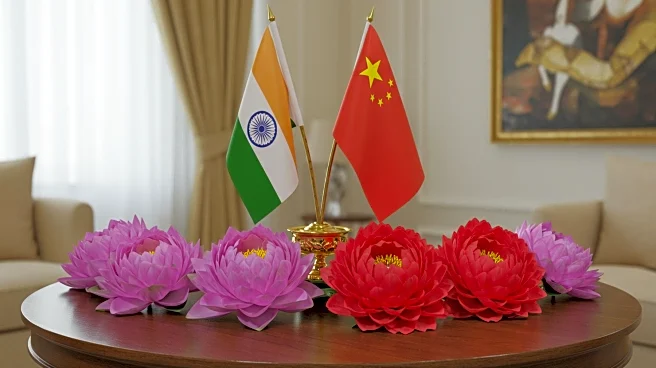What's Happening?
Indian Prime Minister Narendra Modi is set to meet with China's Foreign Minister Wang Yi to discuss easing tensions between the two countries. The meeting aims to address the longstanding border dispute in the Himalayan region, which escalated in 2020 following a deadly clash. The talks will focus on reducing troop presence and resuming trade along the border. This diplomatic engagement comes amid strained relations between India and the United States, following tariffs imposed by President Trump. India and China have been working to normalize relations, including agreements on border patrols and increased official visits.
Why It's Important?
The meeting between Modi and Wang Yi is significant as it represents a potential thaw in relations between two major Asian powers. Improved relations could lead to increased trade and cooperation, benefiting both economies. The easing of tensions may also impact regional security dynamics, particularly in light of India's involvement in the Quad security alliance with the U.S., Australia, and Japan. The diplomatic efforts could shift the balance of power in Asia, especially as India navigates its relationship with the U.S. amidst recent tariffs and Trump's engagement with Pakistan.
What's Next?
Modi is expected to visit China later this month for the Shanghai Cooperation Organization summit, marking his first visit in seven years. This visit could further solidify the diplomatic progress made during Wang Yi's visit. Both countries are likely to continue discussions on trade and border issues, with potential agreements on easing restrictions and increasing direct flights. The outcome of these talks could influence India's foreign policy strategy, particularly in relation to its ties with the U.S. and Russia.









